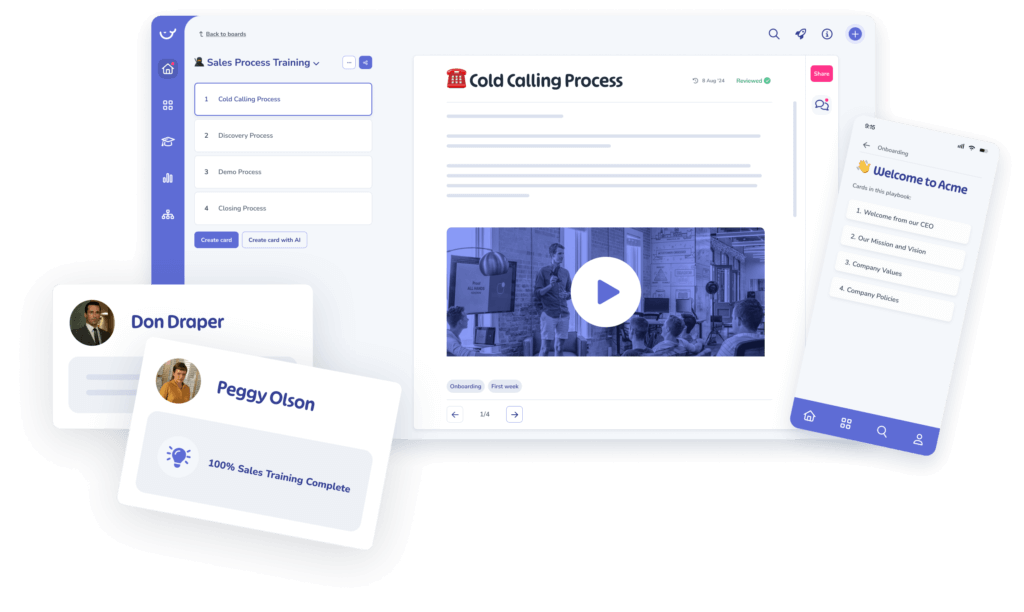Did you know that businesses with robust quality management systems report up to 90% fewer product recalls than those without? That’s a powerful indicator of how crucial quality control is for sustaining trust and profitability. Enter: Quality Management Software (QMS). Whether you’re managing a manufacturing process, ensuring compliance in healthcare, or streamlining operations in service industries, QMS tools can revolutionize how you handle quality.
Let’s dive into what makes QMS software a game-changer, why businesses rely on it, and which tools are worth considering.
What Is a Quality Management System (QMS)?
A Quality Management System (QMS) is a set of processes, procedures, and tools designed to ensure consistent product and service quality. It provides a structured approach to identifying, documenting, and improving an organization’s workflows to meet customer expectations and comply with industry regulations.
Traditionally, organizations relied on manual processes to manage quality, but as businesses and regulatory requirements grew more complex, manual systems became inefficient and prone to errors. That’s where Quality Management Software steps in—offering automation, integration, and real-time insights to help businesses achieve unparalleled quality.
Whether you’re in manufacturing, healthcare, food production, or any other industry, a QMS helps align your organization’s goals with quality-driven processes, reducing risks and driving better outcomes.
Why Do Businesses Need Quality Management System Software?
Implementing QMS software isn’t just about keeping up with the competition; it’s about creating a foundation for operational excellence. Here’s why businesses across industries are embracing this technology:
1. Improved Operational Efficiency
Manual systems are time-consuming and error-prone. QMS software automates routine tasks like document control, compliance tracking, and reporting, freeing up valuable time for your team to focus on higher-level tasks.
2. Compliance and Audit Preparedness
Regulatory standards like ISO 9001, FDA, and GMP demand rigorous documentation and tracking. QMS software ensures all records are accurate, up-to-date, and easily accessible during audits, reducing the risk of penalties.
3. Cost Reduction
Quality-related issues like product defects and recalls can be extremely costly. QMS software helps prevent these issues by enabling real-time monitoring, early error detection, and root-cause analysis.
4. Enhanced Customer Satisfaction
When your products and services consistently meet or exceed customer expectations, you build trust and loyalty. QMS software ensures every aspect of your operations aligns with these goals, leading to happier customers and stronger brand reputation.
5. Data-Driven Decisions
QMS tools provide valuable insights into trends, risks, and areas for improvement through robust analytics and reporting features. This allows businesses to make informed decisions that drive continuous improvement.
6. Risk Mitigation
By identifying potential quality risks early, QMS software helps mitigate them before they escalate. This proactive approach ensures a smoother workflow and minimizes disruptions.
Key Features of QMS Software
When evaluating QMS software, it’s essential to look for features that align with your business requirements. The most effective solutions typically include:
- Document Control: Centralize policies, manuals, and procedures in a secure repository, ensuring everyone accesses the most recent documents.
- Audit Management: Automate audit planning, tracking, and reporting to streamline compliance efforts.
- Corrective and Preventive Actions (CAPA): Manage quality issues by documenting, tracking, and resolving them to prevent recurrence.
- Supplier Quality Management: Evaluate supplier performance to ensure they consistently meet your standards.
- Training Management: Track employee certifications and training to ensure compliance with industry requirements.
- Risk Management: Identify, assess, and mitigate risks affecting product quality or compliance.
- Real-Time Reporting and Analytics: Use data-driven insights to monitor performance and identify opportunities for improvement.
The Best QMS Tools You Need for Quality Control
Let’s take a closer look at some of the top-quality management software solutions available today. Each of these tools brings unique strengths to the table, so it’s important to choose the one that best suits your organization’s needs.
1. Whale
Whale is typically described as an AI-powered documentation and training tool. So how could it be considered a Quality Management System? Well, Whale with it’s checklists and templates is the ultimate quality system, helping businesses of all sizes manage their processes and employee compliance.
- Key Strengths:
- Checklists and templates
- End-to-end quality management with automation.
- Mobile workforces with it’s iOS and Android based applications
- Dashboards for tracking completion rates
Best For: Organizations who are looking to manage employee compliance in an easy all in one solution.

2. MasterControl
MasterControl is a robust QMS solution that caters to highly regulated industries like life sciences, pharmaceuticals, and healthcare. Its comprehensive features include document management, training tracking, and CAPA systems, all designed to ensure compliance with stringent regulations.
- Key Strengths:
- End-to-end quality management with automation.
- Seamless compliance with standards like ISO 13485 and FDA regulations.
- Intuitive dashboards for tracking quality metrics in real time.
Best For: Organizations in highly regulated industries that need rigorous compliance features.
3. ETQ Reliance
ETQ Reliance offers unparalleled flexibility, allowing businesses to customize workflows and processes to fit their unique requirements. It’s especially popular in manufacturing, automotive, and food industries.
- Key Strengths:
- User-friendly interface with customizable modules.
- Comprehensive risk management and analytics tools.
- Scalable solutions for businesses of all sizes.
Best For: Businesses that require a highly customizable and scalable QMS solution.
4. Intelex
Intelex takes a holistic approach by integrating quality management with health, safety, and environmental (HSE) management. Its cloud-based platform ensures accessibility and scalability for growing organizations.
- Key Strengths:
- Real-time monitoring of quality and HSE data.
- Pre-built templates for faster implementation.
- Advanced reporting and analytics tools.
Best For: Organizations looking for an all-in-one solution that combines quality and safety management.
5. SAP Quality Management
As part of the SAP ERP suite, this QMS tool is perfect for large enterprises requiring a robust and integrated solution. It seamlessly connects with other SAP modules, ensuring a streamlined approach to managing quality across the entire supply chain.
- Key Strengths:
- Tight integration with ERP systems for enterprise-wide visibility.
- Advanced analytics and reporting capabilities.
- Reliable support for complex manufacturing environments.
Best For: Large organizations already using SAP ERP and seeking comprehensive QMS integration.
6. Qualio
Qualio focuses on simplicity and efficiency, making it an excellent choice for small and medium-sized businesses in regulated industries like biotech, medical devices, and pharmaceuticals.
- Key Strengths:
- Intuitive interface that’s easy to use and implement.
- Streamlined workflows for managing compliance documentation.
- Built-in tools for employee training and certification tracking.
Best For: Startups and small-to-medium-sized businesses needing a cost-effective yet robust QMS.
Bottom Line? Quality Matters
Quality isn’t just about meeting standards—it’s about exceeding expectations and fostering trust with your customers. A robust Quality Management Software solution is an investment that pays off by enhancing operational efficiency, ensuring compliance, reducing costs, and improving customer satisfaction.
Whether you’re a growing startup or an established enterprise, there’s a QMS tool out there tailored to your needs. Take the time to evaluate your options, and remember: investing in quality isn’t just good business—it’s what sets you apart in today’s competitive market.
Get documenting & training NOW
FAQs about Quality Management Systems?
What industries benefit most from using Quality Management Software (QMS)?
QMS software is beneficial across many industries, especially those with stringent quality and compliance requirements. Industries like manufacturing, healthcare, pharmaceuticals, biotechnology, automotive, food and beverage, and aerospace rely heavily on QMS tools to ensure product safety, regulatory compliance, and operational efficiency. Even service-based industries can use QMS to standardize processes and improve customer satisfaction.
Is QMS software scalable for small businesses?
Yes, many QMS software solutions are scalable and cater to small businesses. Tools offer flexible pricing and features that can grow with your business. They’re designed to provide robust quality management capabilities without overwhelming smaller teams, making them ideal for startups and SMBs looking to implement quality controls on a budget.


